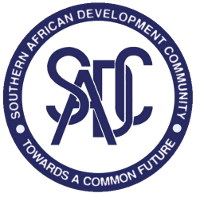With the Scramble for Africa in the 19th century, Europe spread her greedy paws in the name of civilization when in reality all she wanted was expansion of her economic and political power base.
Africa’s vast minerals and virgin lands were still to be tapped especially at a time when Europe was experiencing an economic crisis.
Attainment of Independence by African nations after a long period of colonial rule was a bitter pill to swallow for Europe as her tentacles were cut short and she could no longer directly and openly siphon Africa’s wealth.
True to form, the West has been busy trying to regain their losses through covert operations in black governments.
Zimbabwe has not escaped these efforts to discredit black governments since its much publicised Land Reform Programme, which has been the subject of debate in the international and local media and international bodies.
This is the subject matter of the book under review, “The Regime Change Agenda – Focus on Zimbabwe” by Nyaradzo Mtizira.
He is also the author of a very captivating political thriller titled “The Chimurenga Protocol”, which is rich in Zimbabwean history as it explores the colonial period up to the three Chimurengas.
Mtizira’s “The Regime Change Agenda – Focus on Zimbabwe” is a continuation of “The Chimurenga Protocol”.
The book is an analysis and critique of the tactics employed by the West to overthrow democratically elected governments in Africa and across the globe.
It comes at a time when Zimbabwe is about to go for its harmonised elections after a Government of national unity.
The title of the book expresses the political undertones of the book. Regime change is brought by when a foreign government tries to overthrow another country’s government by force through covert operations and replace it with a government that supports its ideologies and interests.
A good example is the invasion of Libya by Nato forces and just goes on to prove why regime change should be fought against by black governments.
The jacket of the book is just as politically interesting as its contents. The front cover is graced by a ‘fist’ which is emblazoned by the country’s national colours.
The fist is a Zanu-PF symbol for solidarity and patriotism.
The short summary at the back of the book confirms its political orientation and makes one curious to find out what exactly it is that Mtizira says the West has done in terms of strategy to effect regime change in Zimbabwe.
The message of the book is a warning to Zimbabwe ahead of this year’s elections not to be fooled by ‘wolves in sheep’s clothing’ as implied by the writer which is indeed a dig at the West and MDC whom the writer sees as a hidden hand of Europe.
The writer believes that these two are a danger to the country as they represent neo colonialism.
Mtizira writes, “The MDC has played alternatively devil’s advocate for the Western interests and Trojan Horse for the West to the extent of calling for regime change outside of the well-established constitutional guidelines.”
He gives the MDC’s hobnobbing with Western leaders who have imposed sanctions on Zimbabwe.
He talks of the use of NGOs as regime change agenda tactics.
“In Zimbabwe, over 2 500 NGOs exist,” writes Mtizira. “A growing number of these NGOs are serving as tactical conduits of the regime change agenda.”
Mtizira gives examples of Zambia, Russia, Belarus and Ghana, where foreign secret services are actively meddling in local politics through the teaching of programmes used by NGOs to further their interests.
This makes one wonder and question whether foreign aid received through NGOs is genuine or agents of regime change agenda as Mtizira says.
Use of sanctions to effect regime change in Zimbabwe is well-documented especially the Zimbabwe Democracy and Economic Recovery Act (Zidera).
The Act is a sanctions law against Zimbabwe which was signed into law by president George Bush Jnr in 2001.
Mtizira notes how this sanctions Bill came after the Land Reform Programme, which sought to address land imbalances as evidenced by the land ownership patterns in 1980.
He explains how the Land Reform Programme triggered the covert regime change agenda to come out in the open.
The signing of Zidera is very interesting and opens a can of worms as it shows that the Lancaster House Agreement was negotiated in bad faith as the West never had any intention of letting go of the post independent Zimbabwe especially on fair land redistribution.
The exit of NGOs when Zidera was imposed on Zimbabwe raises eyebrows as to whether they were humanitarian or acting as Western proxies and their operations are politically motivated.
Of notable interest is how the media can precipitate regime change. The West is actually notorious for the use of media propaganda to effect regime change.
The violent removal of Libyan president was well screened on the Western networks.
Mtizira notes that “the CNN, BBC, Sky News and Europe News sang from the same hymn book after Gaddafi’s demise”.
They were in support of the rebels whom they saw as “pro-democracy change agents”.
It seems like the West’s main foreign policy is regime change agenda especially to governments that are against their interests.
One has to remember that the mass media can be a very powerful tool in setting agendas and the criminalisation of Zimbabwe’s land reform in 2000 in the Western media is one very good example.
“The Regime Change Agenda – Focus on Zimbabwe” is as controversial as it is interesting and it is indeed an eye opener on why Zimbabwe should champion the policy of non-interference and preventive diplomacy in its interactions with other countries.
Literature like this provides an insight on why the democratically elected and sovereign government of Zimbabwe has taken the stance it has on foreign policies that interfere in their politics and why the West behaves like a ‘scorned woman’.
Whether we like it or not this is a book written by a Zimbabwean and he clearly speaks his mind.
Where is your book?
This article was first published by The Patriot





